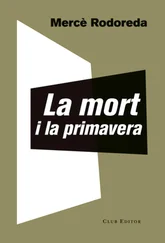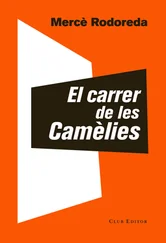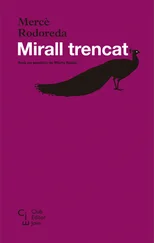“I ran into your wife this morning and told her I would stop by to pay a visit.”
He prescribed a tranquilizer and recommended complete rest. I remained at home for a week, moving between my bed and the library. Before he left each day, Mârius would come to ask me how I was feeling. Sometimes he brought me flowers and magazines; his attentiveness was touching. As soon as I heard the front door close, I would remove the letters from my purse. Why had I not sought a different hiding place? I read and reread them. I knew them by heart. I am convinced that the days of “complete rest” were terrible for me. I tortured myself thinking about the woman that Mârius had loved. That he continued to love. That he loved. If he didn’t, why would he keep the letters, never letting them out of his sight? I was ravaged by an unbearable sense of inferiority. I felt as insignificant as a speck of dust. Why had he married me? Out of spite? Why was he lonely? What was I doing there, weary and heavyhearted? What was it that bound me to the four walls that surrounded me? Soon I began to live with a single obsession: meeting that woman, knowing what color her hair was, her eyes. What if it wasn’t over? And if there were more letters? When Elvira entered the room, she seemed like a jailer, and I was sure that from deep within her small, steely eyes she could see my truth and was glad.
The first day I left the house, I felt strong and young. Oh, yes. I would win. But it was essential that I meet her in order to know what weapon to choose. Strolling through the crowds, surrounded by noise, the brightness of the radiant day, I realized that I loved my husband deeply. I hailed a taxi and gave Eliana’s address. During the days I was shut in the house I had planned what I would do. Surely Eliana had not disappeared for good. The letter said she “was going away with her family for a while, but she is uncertain for how long.” As I crossed the threshold of the building, my hands were as icy as the day I read the letters in the café, when I was overwhelmed by a sense of absence, of not being the one in control and making the decisions, feeling that I was someone else obeying orders given by myself. I walked up the stairs to the second floor. My icy hands began to sweat. I rang the bell. A large woman opened the door with a smile. “Senyoreta Eliana?” “Sorry, try ringing the apartment next door, maybe the neighbors who moved in when she left can help you.” If the kindhearted woman, full of consideration, had not stood in the door, waiting for me to ring, I would have rushed down the stairs breathlessly. But I rang. A girl, about eleven, opened the door. She had plaid ribbons around her braids and a vivacious face filled with curiosity. “Senyoreta Eliana?” She didn’t seem to understand. “I mean, the senyoreta who used to live in this apartment. Would you happen to know where she is now? Did she leave her address?” The girl ran inside, calling, “Mamà, Mamà.” A moment passed. The neighbor was still standing at her door. Soon I heard voices from the back of the apartment and steps approaching. A youngish woman appeared, in a bathrobe, a jar of face cream in her hand. As she talked, she continued to plunge two fingers in the cream, spreading it on her face with circular movements. “Looking for Eliana? Yes, she left us her address in case there was a message; you see, the concierge didn’t much care for her. But she moved such a long time ago that I’m afraid I’ve lost it. You know how it is with children. In any event, check with the concierge; maybe she’ll be nice to you. I’m sure she has it.” She closed the door with a “Come along, girl.” The two women and the girl disappeared as if they had been sucked inside.
The concierge had gone out for a moment, so I waited. She arrived, weighted down by packages and a basket full of vegetables. “How can I help you?” she asked as she placed the packages on a table, without even a glance at me. When she had finished, she looked me straight in the face. “What is it?” “By any chance would you have Senyoreta Eliana’s address?” “Ah, Eliana. Yet again! I thought the fuss was finally over.” “If I’m inconveniencing you. .” “No, not you. Since she moved, not a month goes by without someone asking for her or bringing her letters.” “Letters?” I asked, my heart pounding. “Ah yes, the letters, the mystery surrounding them. .” “So you have her address?” “Hers? I can give you her friend’s address if you wish. She used to stop by here quite often. Always in a hurry, never even a ‘ Bon dia .’ Who do these ladies think they are? I too can go around with my head high.” Still grumbling, she went inside and came back out with a slip of paper in her hand. “Here, you see? Elisa R., Carrer Tenerife 26.” My head began to spin, and I had to lean against the wall. Realizing I felt ill, the concierge had me sit down and brought me a cordial. I remember a bouquet of artificial roses in the center of the table, the sideboard lined with blue glasses. Through an open door at the end of the hall I could see a patio and hear pigeons cooing.
From my diary:
A garden. A cool, shady garden. A garden with no flowers. Wisteria climbing the trellis by the front door, the occasional rustling of leaves. A Japanese room. A screen showing pink ibis, their wings extended, surrounded by yellow chrysanthemums. A small black lacquered table with mother of pearl inlay. Almond branches. A magnificent tiger skin lying on the champagne-colored rug. Rare luxury, a bit overpowering. A woman much older than me. White skin. Very white. Black, rather small eyes and smooth, arched eyebrows. Tall and thin. A voice. . Yes, above all the voice. Just hearing it would make you fall in love with her. As I faced her, I was forced to view myself: a disorderly, brusque, temperamental girl. A failure. How can one possibly acquire her degree of poise and elegance? Somehow I managed to stammer, “I hope you will forgive me. I announced that Mârius Roig had sent me; that’s not the case, nor is he ill. I have come because I wanted to. I am his wife.” At the very least I expected a word, a change of expression, a bit of curiosity. She gazed at me, unperturbed. Had I said nothing more, I am sure the visit would have ended here. “I’ve come because I wanted to meet you. It was such an overwhelming desire that I couldn’t control it.” “What is it that you wish to know?” “Nothing.” “What do you want?” “Nothing.” “Only to meet me?” “Only that.” “Has he spoken to you of me?” I didn’t reply. “Is it because you feel that I stand between you and him?” “No.” The question had been so humiliating that I’d been forced to lie. “So?” “If I ask you something directly, will you respond?” “What is it?” “Do you love him?” It was as if the ibis on the screen had moved. It took her a while to reply. I could see her searching for something that would sound good, diplomatic. “Some things never die.” I wanted to applaud. Even though I saw that she had chosen her reply as one might choose the smallest needle amongst many, still, she had hurt me. She had said it to hurt me and had succeeded. She spoke the words so calmly, with such control, such a penetrating voice. She hurt me, but I knew it was true. I felt as if suddenly I had been pinned to the wall and left there.
•
I was consumed by the desire to die. Not to kill myself, simply to die. To kill yourself you must have the will, the energy. To die, you need nothing. Suddenly I found support in Elvira, and here I had always believed her an enemy.
“I remember the day this Senyora Elisa first visited the house, enveloped in fur and perfume. I think she came about an inheritance. She completely transformed Senyor, like turning a sock inside out. How he changed! He was so cheerful, always in a good mood, but after that hardly a ‘ Bon dia ’ to me. Everything went smoothly while her husband was in the sanatorium. Visits, phone calls, urgent letters. Oh yes, she came to the house. She’d march right in as if she owned it, giving orders like she was the mestressa. She showed up and wrecked Mârius’s life, poor Senyor. Her goal was to make him fall in love with her. She needed a man, forgive me for being so frank, but lots of women are like that. Did they take a trip together? Many. You have to remember that the affair lasted five years. Straight away I saw how selfish she was. And all during this time, she’d visit her husband. She’d go to the sanatorium, sometimes stay a week. I could tell just by looking at Senyor’s face. When she was away, he wouldn’t set foot out of the house, all sad and dull, looking like a sick animal. But the husband regained his health, and she began to withdraw. With plenty of fancy excuses, she abandoned Senyor like an old shoe. But you shouldn’t be thinking about these things. Can’t you see how much he loves you? As soon as I laid eyes on you, I thought to myself ‘He’ll be happy with this girl.’ You can tell right away you’re a fine person. But it’s not good to be sad, believe me, it’s not good.”
Читать дальше












